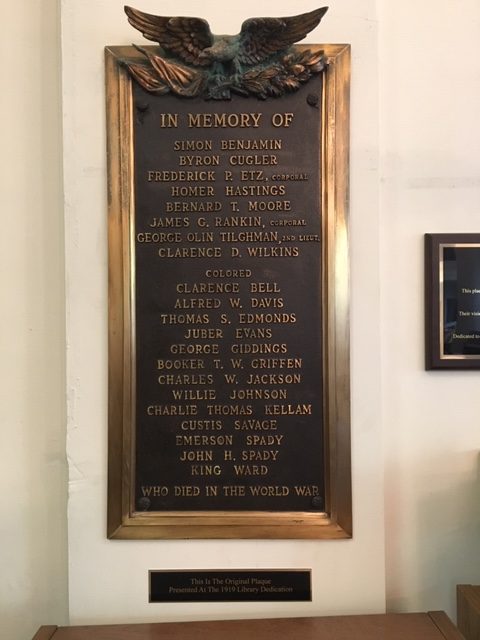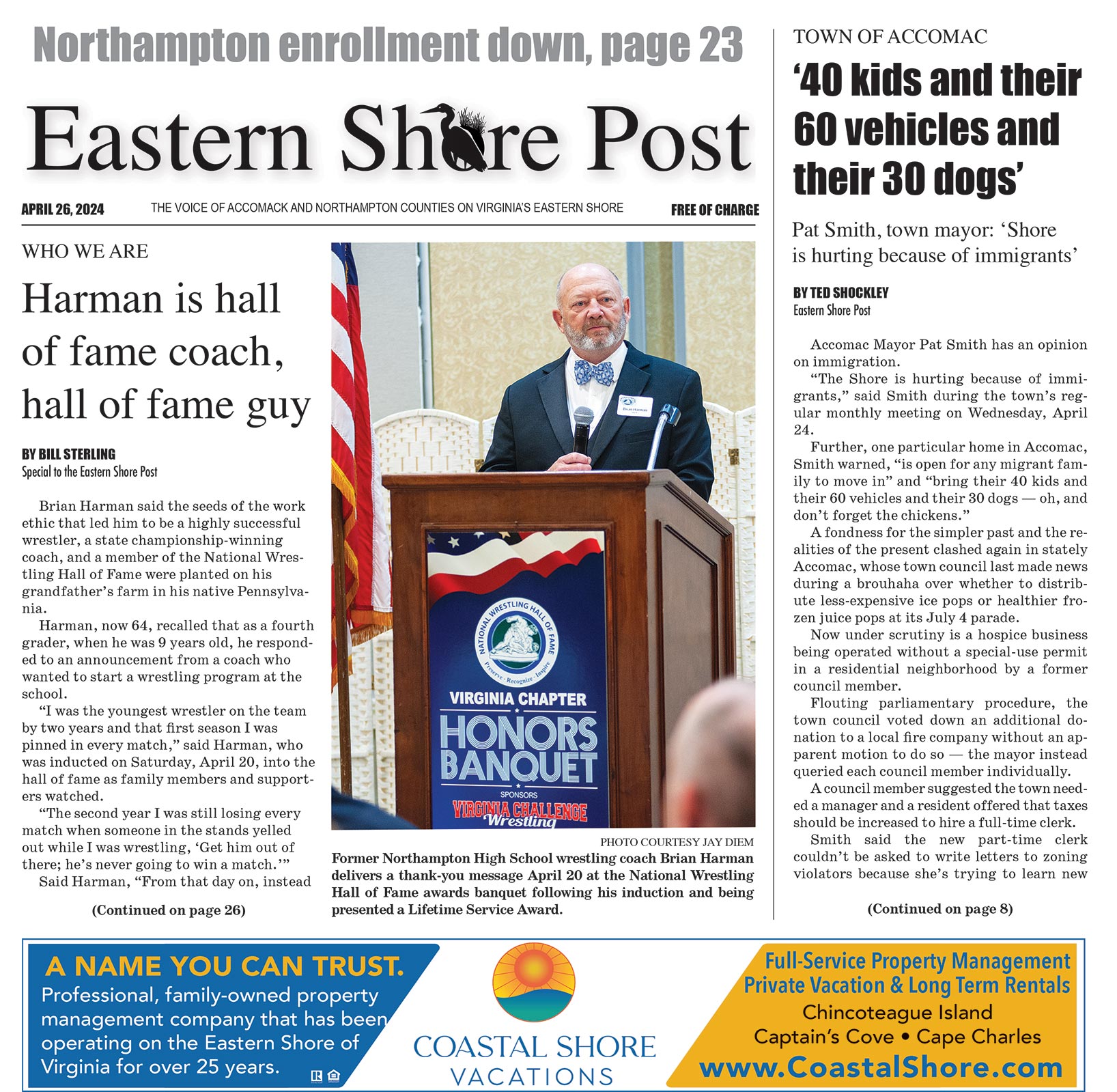
By Stefanie Jackson – Cape Charles Memorial Library board members have thrown their hands up about what to do with what many consider a racist historical marker hanging just inside the library entrance, and they have turned to town officials and the state attorney general for help.
“In a lot of ways, this mirrors the controversy over the Confederate statues,” Linda Schultz said during the public comment period at the June 12 board meeting.
The Cape Charles library was founded in 1919, and at its dedication that same year, a plaque was presented bearing the names of all the men from the town who died in World War I, which ended in 1918.
The names on the plaque are segregated by race. Beneath the first seven names appears the word, “colored,” followed by 13 more names.
Hanging underneath the plaque is a small sign that reads, “This is the original plaque presented at the 1919 library dedication,” to provide some context for the memorial, but it doesn’t tell the whole story, Schultz said.
“We have this wonderful, beautiful little upper-middle class haven here in Cape Charles. It wasn’t like that back in the day. It was segregated. African Americans were not even allowed to come into the library until, I think, the mid-‘70s.”
Before the library moved to its current location on Mason Avenue, the plaque hung in the old library, a former church on Tazewell Avenue, which is now the Cape Charles Civic Center.
Library board members are questioning if the plaque is a war memorial as defined in section 15.2-1812 of the Virginia code. If so, it’s illegal to move the plaque and it could be considered stolen town property, Town Manager Larry DiRe said.
If the plaque is not a war memorial, then it’s like “another piece of furniture” and the library board can do whatever it wants with the plaque, DiRe said.
If the plaque is a memorial, then the question is whether it should be returned to its original location on Tazewell Avenue or if it belongs in the library, wherever it is located.
Library board member Dianne Davis said the suggestion had been made to move the plaque into the library’s history room.
But board member Roger Moyer said historically, the board did not agree that the plaque should be moved at all.
Board member Chris Bannon called the plaque “special” for honoring blacks and whites together.
The next step is for the Cape Charles town attorney to send a letter to the state attorney general requesting his recommendation regarding the memorial plaque.
But the Cape Charles town council never appointed its legal consultant as the official town attorney. That action must be taken at the next town council meeting June 20 so the attorney can send the letter on the town’s behalf.


